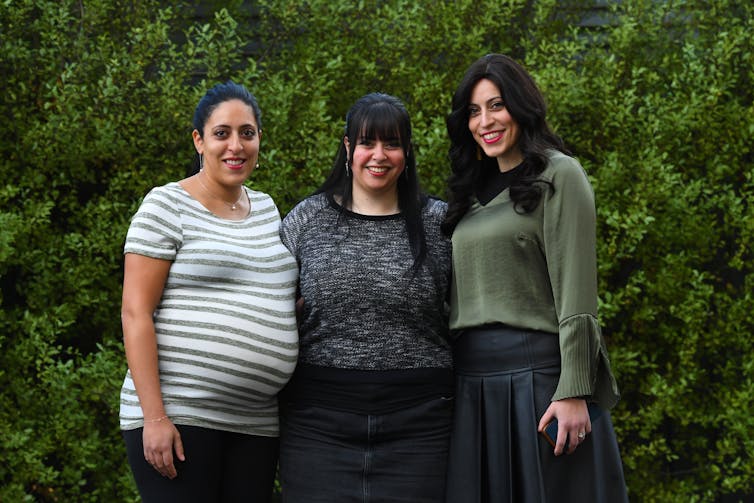The Israeli Supreme Court has cleared the way for Malka Leifer's extradition hearing. What happens now?
- Written by Amy Maguire, Associate Professor in Human Rights and International Law, University of Newcastle
Israel’s Supreme Court ruled on September 2 that Malka Leifer is fit to stand trial on charges she faces in Victoria. Leifer is accused of 74 counts of rape and sexual assault.
This ruling is a significant milestone in the ongoing effort to extradite Leifer from Israel to Australia. It is the final legal hurdle to a full assessment of Australia’s extradition request. The District Court will decide on September 21 if Leifer should be extradited, although that hearing will still offer avenues for appeal and may result in further delay.
Read more: Explainer: what is extradition between countries and how does it work?
The charges
In 2000, Leifer was employed from Israel to become headmistress of the ultra-orthodox Adass Israel girls’ school in Melbourne. During her time at the school, Leifer is alleged to have sexually abused three students - sisters Dassi Erlich, Nicole Meyer and Elly Sapper.
When the allegations emerged in 2008, Leifer fled to Israel with her family. The school funded her flights. Her alleged victims have doggedly pursued Leifer’s extradition to Australia in the years since, at considerable personal toll.
 Elly Sapir, Dassi Erlich and Nicole Meyer.
AAP/James Ross
Elly Sapir, Dassi Erlich and Nicole Meyer.
AAP/James Ross
Australia seeks extradition
In 2013, Australia lodged an extradition request with Israel. Extradition is a process by which an alleged offender may be apprehended by an “extraditing state” and transferred to a “requesting state” in order to be tried for a crime in the requesting state’s jurisdiction.
Although extradition is a longstanding concern of international law, it relies on extradition arrangements between states rather than an overarching system of enforcement.
Australian law governs extradition through the Extradition Act. The act sets a framework for courts to determine if a person is to be extradited from Australia. It also empowers the government to make extradition requests of other governments.
Following Australia’s request, Israel eventually arrested Leifer in 2014. However, she was later bailed, claiming to be too unwell to attend multiple subsequent court hearings on her case.
In 2018, Leifer was again jailed, when evidence emerged that she had been living and socialising normally in an orthodox Israeli settlement.
Where does the extradition request stand now?
Extradition is a complex process, including legal and political elements.
In January this year, a psychiatric panel determined Leifer was mentally fit to stand trial. In May, the District Court in Jerusalem confirmed that finding.
Leifer appealed the May ruling, and it was that appeal that has now been dismissed in the Supreme Court of Israel. The judges noted the case has dragged on considerably longer than is reasonable.
Read more: Malka Leifer has been ruled fit to stand trial. Will extradition to Australia follow?
Leifer’s lawyer, Nick Kaufman, had argued she would not receive a fair trial in Australia, because the case has been so widely reported. In Kaufman’s view, a jury would be prejudiced against Leifer because of the earlier findings she was faking her mental illness to avoid extradition.
The Supreme Court rejected this argument. But this does not mean Leifer will soon be extradited to Australia (never mind the additional complication of arranging her travel during the pandemic).
In extending the legal process for so long, Leifer has managed to avoid any substantive decision on the extradition claim itself. Years of hearings have been concerned with her fitness to stand trial.
So this week’s decision paves the way for the substantive extradition process to commence. Hopefully it will proceed more quickly than all the steps that have led to this point. The District Court in Jerusalem is due to give its finding on the substantive extradition matter on 21 September.
If the District Court concludes Leifer should be extradited to Australia, she will again have an opportunity to appeal.
Extradition decisions in Israel are governed by Israeli law. Once the matter is resolved in the courts, responsibility will shift to the Department of International Affairs in the Israeli Ministry of Justice.
This means the eventual political outcome of Leifer’s case, even if Israel agrees to extradite her to Australia, may come with conditions. For example, Israel could require that Leifer be returned to Israel to serve a sentence of imprisonment, should she be convicted in Victoria on the charges she faces.
This would be a challenging outcome for Australia, particularly in light of the current controversy regarding the conviction of an Australian national for the Christchurch massacre. In that case, some in New Zealand are calling for Australia to repatriate the convicted man to serve his life imprisonment sentence in Australia.
One thing is certain - this week’s ruling will bolster Australia’s strong and consistent demands for Leifer’s extradition to face prosecution in Victoria. This case has strained relations between Australia and Israel. A swift resolution of the remaining processes, and Leifer’s extradition, would be significant in shoring up friendly relations between the two countries.
Authors: Amy Maguire, Associate Professor in Human Rights and International Law, University of Newcastle




